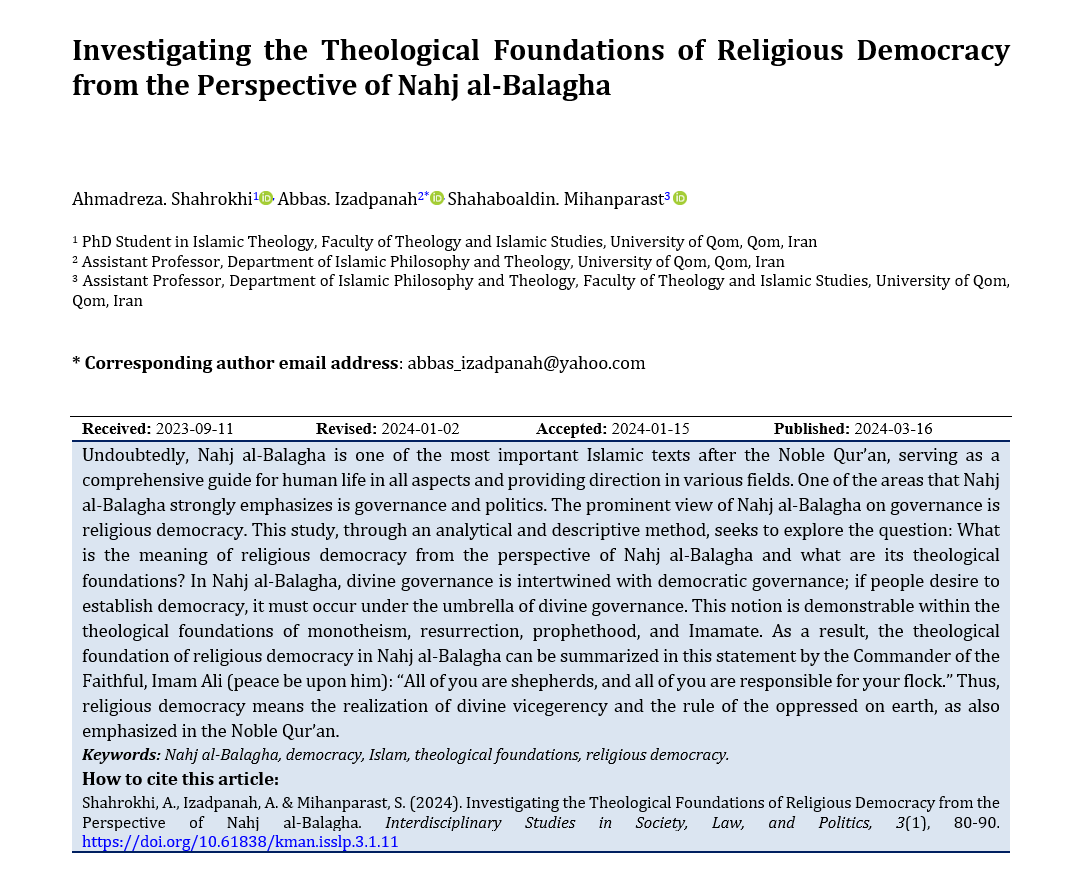Investigating the Theological Foundations of Religious Democracy from the Perspective of Nahj al-Balagha
Keywords:
Nahj al-Balagha, democracy, Islam, theological foundations, religious democracyAbstract
Undoubtedly, Nahj al-Balagha is one of the most important Islamic texts after the Noble Qur’an, serving as a comprehensive guide for human life in all aspects and providing direction in various fields. One of the areas that Nahj al-Balagha strongly emphasizes is governance and politics. The prominent view of Nahj al-Balagha on governance is religious democracy. This study, through an analytical and descriptive method, seeks to explore the question: What is the meaning of religious democracy from the perspective of Nahj al-Balagha and what are its theological foundations? In Nahj al-Balagha, divine governance is intertwined with democratic governance; if people desire to establish democracy, it must occur under the umbrella of divine governance. This notion is demonstrable within the theological foundations of monotheism, resurrection, prophethood, and Imamate. As a result, the theological foundation of religious democracy in Nahj al-Balagha can be summarized in this statement by the Commander of the Faithful, Imam Ali (peace be upon him): “All of you are shepherds, and all of you are responsible for your flock.” Thus, religious democracy means the realization of divine vicegerency and the rule of the oppressed on earth, as also emphasized in the Noble Qur’an.
Downloads






